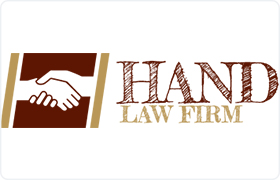 Lanett Estate Planning Lawyers, Alabama
Lanett Estate Planning Lawyers, Alabama
Sponsored Law Firm
-
 x
x

Click For More Info:
-
Hand & Associates, LLC
114 N 8th St Opelika, AL 36801» view mapAccident & Injury, Family, Business, Wills, Criminal Accomplished · Determined · Experienced
Our approachable attorneys immediately put you at ease about your legal problem. We are focused on making a brighter future for you.
334-741-4077
Includes: Gift Taxation
Lawyers
1-3 of 3 matches
Estate, Elder Law, Estate Planning, Corporate
Business Organization, Corporate, Estate Planning, Commercial Real Estate, Power of Attorney



 Benny Hand Opelika, AL
Benny Hand Opelika, AL Practice AreasExpertise
Practice AreasExpertise